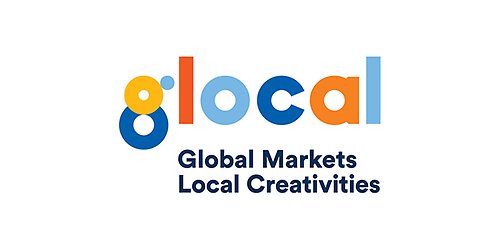Master's Programme in Global Markets, Local Creativities
120 credits

The concept of globalisation is central to an understanding of economic and social change in the 21st century. The Master's programme in Global Markets, Local Creativities - GLOCAL - offers an integrated analysis of the history, institutions and cultures of the globalised economy. This is a transdisciplinary joint programme with seven partner universities. One semester of the programme is hosted in Uppsala.
Autumn 2023 Autumn 2023, Glasgow, Uppsala, Rotterdam, Göttingen, Bogotá, 100%, On-campus, English
- Location
- Glasgow, Uppsala, Rotterdam, Göttingen, Bogotá
- Pace of study
- 100%
- Teaching form
- On-campus
- Instructional time
- Daytime
- Start date
- 11 September 2023
- Language of instruction
- English
- Entry requirements
-
Academic requirements
A Bachelor's degree, equivalent to a Swedish Kandidatexamen, from an internationally recognised university.
Also required is 90 credits within the social sciences or history or social anthropology.
Language requirements
Proficiency in English equivalent to the Swedish upper secondary course English 6. This requirement can be met either by achieving the required score on an internationally recognised test, or by previous upper secondary or university studies in some countries. Detailed instructions on how to provide evidence of your English proficiency are available at universityadmissions.se.
- Selection
-
See the GLOCAL website for information about the selection procedure.
- Application deadline
- 6 January 2023
- Additional information
-
Apply for this programme at the GLOCAL website, where you will find more information on the application process. Please note that for this programme all students (including citizens of a EU/EEA country or Switzerland) are required to pay tuition fees.
Autumn 2024 Autumn 2024, Glasgow, Uppsala, Rotterdam, Göttingen, Bogotá, 100%, On-campus, English
- Location
- Glasgow, Uppsala, Rotterdam, Göttingen, Bogotá
- Pace of study
- 100%
- Teaching form
- On-campus
- Instructional time
- Daytime
- Start date
- 9 September 2024
- Language of instruction
- English
- Entry requirements
-
Academic requirements
A Bachelor's degree, equivalent to a Swedish Kandidatexamen, from an internationally recognised university.
Also required is 90 credits within the social sciences or history or social anthropology.
Language requirements
Proficiency in English equivalent to the Swedish upper secondary course English 6. This requirement can be met either by achieving the required score on an internationally recognised test, or by previous upper secondary or university studies in some countries. Detailed instructions on how to provide evidence of your English proficiency are available at universityadmissions.se.
- Selection
-
See the GLOCAL website for information about the selection procedure.
- Application deadline
- 26 July 2024
- Additional information
-
Apply for this programme at the GLOCAL website, where you will find more information on the application process. Please note that for this programme all students (including citizens of a EU/EEA country or Switzerland) are required to pay tuition fees.
About the programme
The Master's programme in Global Markets, Local Creativities - GLOCAL - is an Erasmus Mundus Joint Master's Degree programme. It combines knowledge concerning the development of the global economy with it concerning the national, regional and local contexts. It is important to learn about both the institutional differences and the complementarities as well as gain a global perspective. This is a solid basis for working globally. You will also study entrepreneurship, regional and global markets, welfare states, and national and local cultures.
There are seven study tracks in the programme that you need to choose from already in your application. Three of them involve studies at Uppsala University in the second semester. The three tracks are:
- Study track E: Institutional Change and Creative Industries.
You will study your first semester in Glasgow, second semester in Uppsala, and third and fourth semester in Rotterdam; - Study track F: Global Political Economy.
You will study your first semester in Glasgow, second semester in Uppsala, and third and fourth semester in Göttingen; - Study track G: Sustainability: Institutions and Management.
You will study your first semester in Glasgow, your second semester in Uppsala, your third semester in Bogotá, and your last semester in Glasgow.
Courses at Uppsala University focuses on sustainability.
The programme also prepares you for PhD studies in Uppsala, at partner universities or elsewhere in the world.
Degree
The programme leads to the degree of Master of Social Science (120 credits) with Economic History as the main field of study and, in addition, equivalent degrees from two of the partner universities.
Content
GLOCAL is a two-year full-time international Master's degree featuring a choice of seven study tracks over a choice of seven partner universities. All students will spend their first semester in Glasgow, the second semester in either Barcelona or Uppsala and then choose between Rotterdam, Göttingen, Los Andes or Kyoto for their third partner university.
Please go to the GLOCAL website to find detailed information on each study track, and information on what specialist areas each institution focuses on.
Depending on the study track you choose in your application, you will study with at least three of the partner universities. Three study tracks involve studies at Uppsala University in the second semester of the programme. The second semester is the spring semester.
We offer four courses, of which two are compulsory and two are elective:
- Sustainability of Welfare Policies in the Modern Era, 7.5 credits (compulsory)
- Sustainability of Financial Markets in the Modern Era, 7.5 credits (compulsory)
- Modern Natures: Conflicts and Transformation, 7.5 credits, (elective)
- Sustainability of Economic Thought, 7.5 credits (elective)
As an alternative to the elective courses, other courses on an advanced level in social science or arts will be offered at Uppsala University.
Learning experience
The teaching methods vary between the different partner universities. The teaching method at Uppsala is seminar-based. At a seminar, you present your ideas and discuss with your classmates a course book or other study material that you are required to read before the seminar. The teacher usually only moderates the discussion. The aim is to develop critical thinking and collaborative skills. All the students are expected to be active participants in all forms of discussions.
As an internationally mobile student, you will have the best opportunity to develop your intercultural awareness. During the studies in different countries, you will be able to compare and develop systems, good practices and cross-cultural fluency. A multicultural and multi-layered learning environment creates a unique learning experience compared with the "standard" educational experience.
The positive implications of the programme are many and multifarious. One example is the fact that each of the partner universities offers language training so that you will get to learn and practice at least one of the languages: Spanish, Dutch, Swedish, German or Japanese. The mobility periods are critical to the learning outcomes as they provide students with exposure to cutting-edge teaching, research and practice across Europe and the globe.
The programme is taught entirely in English at all the partner universities.
Career
Internationally mobile students have the opportunity to develop international careers. The first GLOCAL alumni survey shows that 76 % of respondents are employed while a further 12 % are undertaking an internship. 50 % of respondents are based in Europe. Alumni have diverse career paths, and are now employed for example in academia, government and international relations, fintech, media and consulting. Some alumni are also self-employed.
Career support
During your time as a student, UU Careers offers support and guidance. You have the opportunity to take part in a variety of activities and events that will prepare you for your future career.
Is this programme right for you?
Read interviews with our students.

The international programme website
The programme is an Erasmus Mundus joint Master’s programme.

Register your interest
Keep updated about the application process.

Contact
- Director of Studies Olle Jansson
- olle.jansson@ekhist.uu.se
- +46 18 471 73 14
- GLOCAL Consortium - the official international website
- GLOCAL Experience Student Website - student blog
Students
As a student you will find information about your studies in the student gateway.
